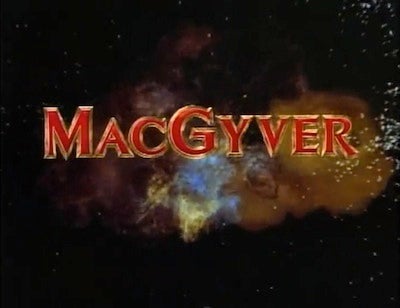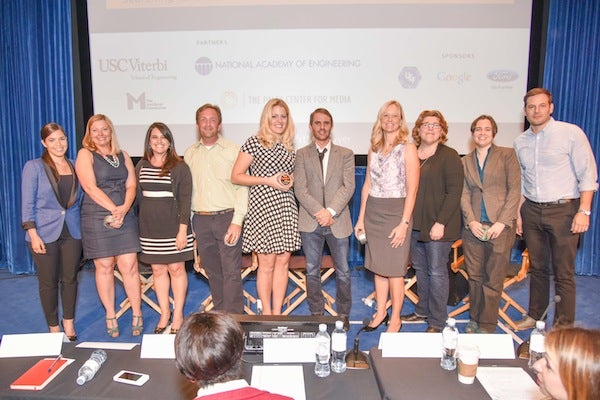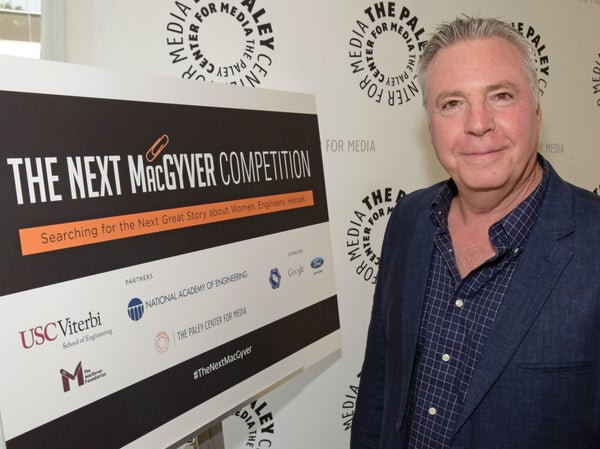This article was published in Scientific American’s former blog network and reflects the views of the author, not necessarily those of Scientific American
At a town hall meeting in Los Angeles last year, President Obama said:
“When you see an engineer or a tech person on a TV show or movies, something like 90 percent of them are male. So if you never see you in that position, it’s hard to imagine, well, that’s something I should be doing. Apparently, when CSI starting coming out…the number of women who applied to get into forensics and started studying that field skyrocketed—just from CSI. So we know that just these cultural cues that we send out can make an enormous difference.”
The fact is only 19 percent of the engineering degrees awarded in the U.S. go to women—a number which has actually been falling over the last decade. And, globally, that number is around 14 percent. So how do we expect to successfully confront the challenges facing our growing global civilization if we are somehow discouraging nearly half the population from becoming the kinds of hands-on problem solvers we so obviously need?
On supporting science journalism
If you're enjoying this article, consider supporting our award-winning journalism by subscribing. By purchasing a subscription you are helping to ensure the future of impactful stories about the discoveries and ideas shaping our world today.
MacGyver debuted 30 years ago in 1985 and has run continuously around the world ever since even though they stopped making new episodes in 1992! And I know, from literally thousands of personal encounters, that MacGyver inspired all those people, and no doubt many more—men and women—to pursue careers in higher education, engineering and the sciences.

The title card from the opening sequence of the ABC television show MacGyver. (Source: Wikimedia Commons)
So two years ago, when Adam Smith, the Director of Communications at the USC Viterbi School of Engineering, approached me with the concept of doing a global, crowd-sourced competition to try and create a new TV series with an iconic female engineer heroine at its center, I knew that I was ready to jump aboard. How better to try and address the imbalance in the gender gap of engineering than to do what shows like MacGyver and CSI had done? And what better use could there be for the MacGyver name than to suggest the kind of character that was missing from the cultural landscape? A woman engineer character? Like MacGyver? It was no doubt exactly the sort of idea MacGyver himself might come up with. And just the sort of project The MacGyver Foundation was created to sponsor. (Frankly, I’m a little chagrined that Adam thought of it before I did. But, hey, a good idea is, after all, a good idea no matter where it comes from.)

MacGyver creator Lee Zlotoff and writer/producer Roberto Orci. (© The Paley Center for Media)
From there we took the concept, now brazenly titled “The Next MacGyver” to the National Academy of Engineering who also saw the potential and so put up the initial funds to get the competition rolling. Since then, The Paley Center for Media, the United Engineering Foundation, Google and the Ford Motor Company have all joined in to make this contest a reality, even though we had no idea exactly what kind of a response, or how many submissions we might actually get when we launched it this past February. 50? 100? 500? More? Well, we actually received nearly 2,000 submissions. And were then faced with the unenviable task of whittling those down to 12 finalists, which was done by a slew of both engineers and entertainment professionals so that every entry would be reviewed by a least two people, one from each of those camps.
And from those 12 finalists, each of whom would get a chance to pitch their concept in person, we were going to select five winners, all of whom would receive a prize of $5,000. But, even more important than the cash reward, to really give those winning concepts a fighting chance of making it onto the airwaves, each winner would also be paired with a successful and renowned producer in television who would help them craft their script, and champion that pilot to the networks and content producers in the industry. Because, in the entertainment business, who you are and who you know is often even more important that what you have to share.
So who were our mentors? Well, Anthony Zuiker, the creator of the wildly successful CSI franchise. And Lori McCreary, a computer engineer who is also the president of The Producer’s Guild of America and the CEO of Revelations Entertainment which produces Madame Secretary and Through The Wormhole with Morgan Freeman. We also have actress and producer, America Ferrera of Ugly Betty and The Sisterhood of the Traveling Pants. As well as Clayton Krueger, Senior VP of Television for Scott Free Productions, which produces The Good Wife as well as a slate of successful movies too numerous to mention. And finally, the incredibly successful Roberto Orci whose credits include, the most recent Startrek films, and the TV series Scorpion, Hawaii 5-0, Fringe, and Sleepy Hollow just to name a few.

The Next MacGyver competition winners and their mentors. From left to right, America Ferrara and Shanee Edwards, Gabrielle Neimand and Craig Motlong, Jayde Lovell and Robert Orici, Beth Keser and Tracy Mercer, Miranda Sajdak and Clayton Krueger. (© The Paley Center for Media)
And so it was that on July 28, at the Paley Center for Media in Los Angeles, our 12 finalists made their pitches to a packed house of students, Hollywood notables, journalists, judges and mentors who then fiercely and passionately deliberated to select the five winners. And they are Shanee Edwards who will be working with America Ferrera and her team at Take Fountain Productions on her concept Ada and the Machine, Beth Keser, who will be mentored by Lori McCreary and Revelations Entertainment on her concept Rule 702, Jayde Lovell, who is mentored by Roberto Orci on her concept SECs, Craig Motlong who will be working with Anthony Zuiker on his concept Q Branch, and Miranda Sajdak who will be mentored by Clayton Krueger on her concept Riveting. To learn more about the winners and their concepts, and to watch the awards event online, you can go to TheNextMacGyver.com.
Bottom line: instead of trying to sweet-talk or convince Hollywood it was time to make a compelling show about a great female engineer character, we all just decided to MACGYVER one! And I will do my best to keep you posted about how the scripts are developing and what YOU might be able to do to help us get at least one—if not more—of these shows on the air and into circulation. So stay tuned! The real drama is just beginning.
See also: "MacGyvering a Female Engineer Onto Television," a post by Jayde Lovell, one of the five winners of the The Next MacGyver competition, about crafting her pitch, SECs, and "walking the line between the stereotypical science geek that is expected in mainstream television and a realistic, three-dimensional character that young girls will aspire to become."
